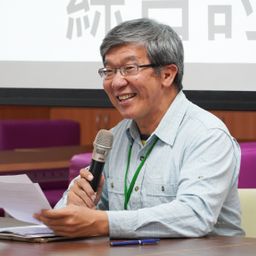The investigation and planning for serial coal-mining industrial cultural landscapes of Taiwan
Mon statut pour la session
Quoi:
Paper
Quand:
12:00, Jeudi 1 Sep 2022
(20 minutes)
Où:
UQAM, pavillon J.-A. De Sève (DS)
- DS-1545
Cultural landscapes are not all isolated in a single location. There are often two or more cultural landscapes located in different areas, connected to each other, and necessary for common conservation and maintenance, which requires a ‘serial’ type of investigation, research, planning and management. Taiwan's ‘Cultural Heritage Preservation Act’ was firstly enacted in 1982, initially limited to conservation of individual sites of monuments and historic buildings. In 2005 the Act was amended to increase a new instrument ‘cultural landscape’, but still limited to local and single conservation and revitalization. The concept of ‘serial’ designation of cultural heritage sites was introduced to the newly amended Act in 2016. However, how to use this new instrument concept and tool for conservation of regional and serial cultural landscapes is still a topic to be explored. This article presents outcomes of the 2018-2020 pioneering study on investigation and planning for serial sites of
mining cultural landscapes in Taiwan. The study aims to systematically survey the legacy attributes of coal mining heritages and provide suggestions accordingly to competent agencies for identifying actionable preservation policy.
This study focuses on the Northern Coalfields of Taiwan to create a survey and inventory on cultural resources of tangible and intangible heritages. A ‘systematic survey, inventory and evaluation workflow for serial cultural landscape resources of Taiwan’s coal mining industrial heritages’ is formulated accordingly with specific regulations and governance. Firstly, the study catalogs 11 potential ‘Cultural Landscapes Areas’ in Northern Coalfields (Area A to K)' and develops possible listing criteria for each potential cultural landscape area to be used as registration reference for competent agencies. Next, the study groups three potential clusters of ‘Serial Cultural Landscape Sites’ – ‘Keelung,’ ‘Taipei,’ and ‘Hsinchu and Miaoli’ from the aforesaid 11 potential cultural landscape areas, according to elements for designation of serial cultural landscape sites developed by this research. Lastly, the study cites ‘Potential Cultural Landscape Area A’ as an example to put forward operable
conservation and management policies, and planning suggestions to ensure a structuralized future roadmap for effective conservation and promotion programs.

Discussion